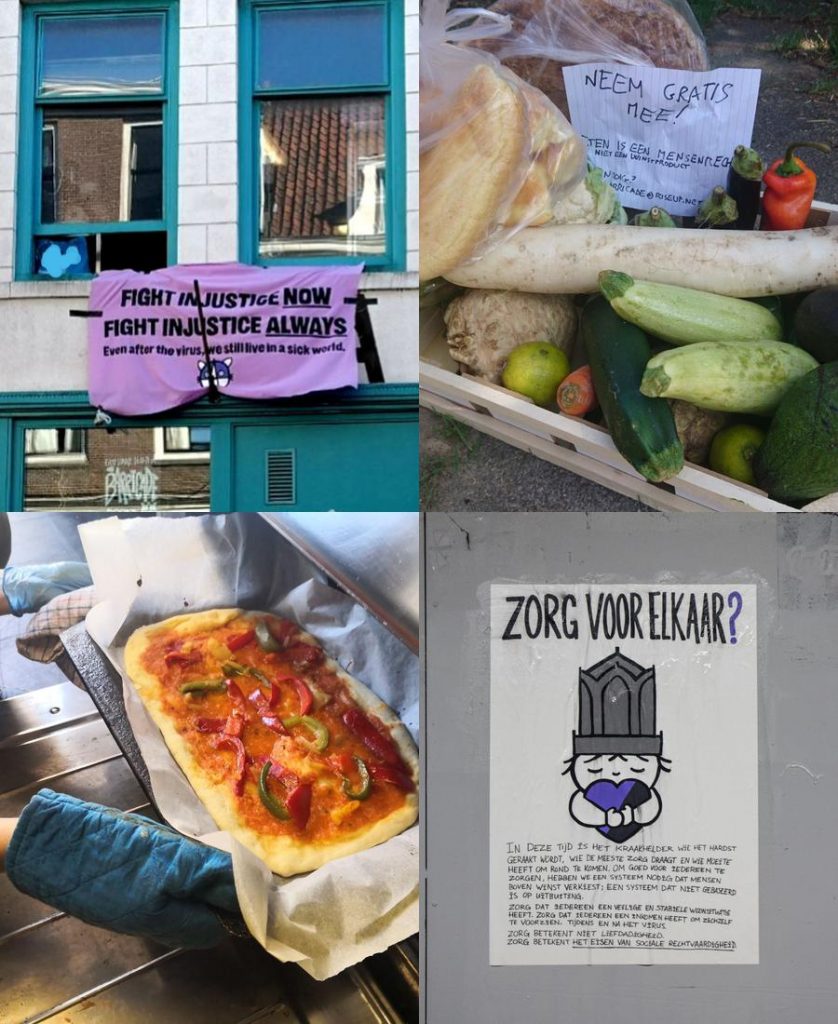After the serie of Reflection Tables on Kitchens and Struggle that we hosted last year, on Sunday 18/10 we are going to host another Reflection Table, even if this time online, to pool our experiences and our knowledge and inspire each other with the ways in which we continue to resist capitalism via the collectivisation of food during this very specific time.
The one that follows is the introudction text for the discussion.

Despite the worrying increase of contagions we think that it’s super important to still build places of solidarity that are safe for everybody. It doesn’t look like this situation will be resolved soon, and we therefore think that stopping our political activities as a people’s kitchen is not an option.
Nonetheless, the unavoidable physical distance forces us to re-shape our practices completely and leaves us with a lot of questions.
First of all, there is the questions of logistics. Our kitchens aim to collectivise our food and our meals, by bringing (mostly large) groups of people together to cook and eat. We also position ourselves critically towards the restaurant service dynamic, pushing and practicing a space that is constructed by all the people crossing it. Now that our society is shaped around distance, measures and strict hygiene, we need to rethink how we, as people kitchens, can still gather safely and construct those spaces. How are we shaping our physical spaces? How do we come up with a social dynamic that will keep us safe, while also staying critical towards the measures that are (or are not) imposed on us? How can we still be active without reproducing service dynamics even more (reservation, table service ..)? How can we create spaces of solidarity, where we all understand our risks as well as the importance to still gather and share food?
Secondly, there is the question of how to send out our idea of solidarity as People’s Kitchen. Apart from emphasizing on distancing and following the measures, our governmental institutions, be it local or national, also highly promote a society where we stand in ‘solidarity’ with each other, be it doing each others groceries or volunteering in the care sector. Yes, we should look after each other, especially now that the effects of the pandemic on people’s income and health are becoming more clear, and as people’s kitchens, we have always stood for solidarity. However, our practise should be conflictual with the mere idea of philanthropy the government is speaking so fondly of. How can we push forward the message of solidarity that stands for self-organisation and mutuality?
